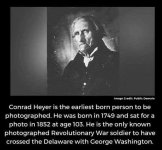Värdet av en randomiserare.
"When hunting caribou, Naskapi foragers in Labrador, Canada, had to decide where to go. Common sense might lead one to go where one had success before or to where friends or neighbors recently spotted caribou.
However, this situation is like [the Matching Pennies game]. The caribou are mismatchers and the hunters are matchers. That is, hunters want to match the locations of caribou while caribou want to mismatch the hunters, to avoid being shot and eaten. If a hunter shows any bias to return to previous spots, where he or others have seen caribou, then the caribou can benefit (survive better) by avoiding those locations (where they have previously seen humans). Thus, the best hunting strategy requires randomizing.
Can cultural evolution compensate for our cognitive inadequacies? Traditionally, Naskapi hunters decided where to go to hunt using divination and believed that the shoulder bones of caribou could point the way to success. To start the ritual, the shoulder blade was heated over hot coals in a way that caused patterns of cracks and burnt spots to form. This patterning was then read as a kind of map, which was held in a pre-specified orientation. The cracking patterns were (probably) essentially random from the point of view of hunting locations, since the outcomes depended on myriad details about the bone, fire, ambient temperature, and heating process. Thus, these divination rituals may have provided a crude randomizing device that helped hunters avoid their own decision-making biases."
—Joseph Heinrich, 'The Secret Of Our Success'


 sv.wikipedia.org
sv.wikipedia.org






